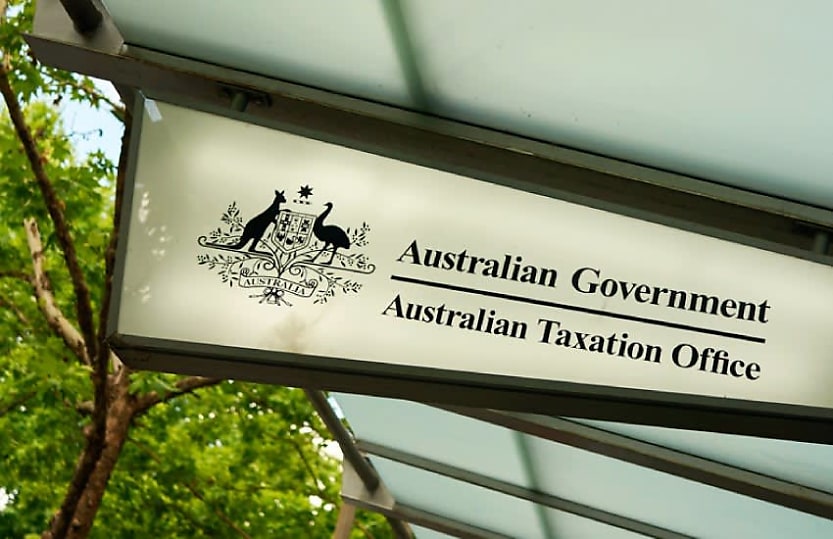ATO mulls delaying GST refunds to weed out bogus claims

Commissioner Chris Jordan has told Senate estimates that tight turnaround times hamper the Tax Office’s ability to prevent fraud.
The ATO is considering extending the time it takes to process GST refunds to help weed out bogus claims, but experts warn a “knee-jerk” reaction to delay lawful returns could cause distress to businesses that need cash flow.
During a Senate estimates hearing on Wednesday, ATO officials faced questions over their ability to manage GST fraud in light of widespread schemes that rorted $2 billion between 2022 and 2023.
Commissioner Chris Jordan blamed the current 14-day turnaround period to issue GST refunds and said it was "just not enough” time to apply adequate scrutiny.
“That 14 days converts to about eight days to make a decision on whether to pay that refund or not,” he told members of the Economics Legislation Committee.
“It's something we are seeking to change, I probably shouldn’t say that, but I wanted to assure you that we are, that it is done,” he said.
The concerns raised by senators over the ATO's fraud controls comes after a scathing report by the auditor-general’s office, which found its strategies were only “partly” effective, “not fit for purpose and is not operating as intended”.
The Australian National Audit Office's report, released on Tuesday, said the lack of a “contemporary and holistic view of GST fraud risks” and insufficient detection systems meant the ATO played catch up through Operation Protego as more than 57,000 people, including 150 ATO workers, participated in infamous "TikTok" GST scams.
Second Commissioner Jeremy Hirschhorn said the ATO’s approach to processing GST refunds attempted to strike a balance between “stopping lots of refunds and hurting a lot of businesses, or stopping fewer refunds and cleaning up the mess of the ones you should have stopped”.
Before Operation Protego, he said the ATO “generally trusted people and got them their refunds quickly” under the self-assessment system.
“The balance has clearly been in favour of getting refunds to legitimate business and cleaning up the fraud after,” he said, meaning most GST fraud compliance actions happened after refunds were paid.
No timeframe is mandated under the GST Act and the Commissioner must make refunds "within a time which is reasonable in the circumstances", the Federal Court ruled in the Multiplex case.
A slowdown would give the ATO more time to decide whether claims should be withheld on the grounds of suspected fraud, but the ATO did not specify how much additional time it would need.
Leading GST expert Kevin O’Rourke said the ATO’s balancing act was a “delicate” one that could be disrupted if businesses experienced unreasonable delays.
“It is a delicate balancing act between preventing fraud on the system but also having regard to the cash flow of businesses,” he said.
“It's not the role of business to fund government or to be in a negative cash flow situation. There's a point at which that if the Commissioner needs more time, he will have to start paying interest on the accounts. But none of that addresses the immediate cash flow issues.”
Mr O’Rourke, a tax lawyer who has published extensively on the ATO’s administration of GST, said a “couple of extra days” to process refunds would be a reasonable response.
"But if they start to hold up refunds for weeks at a time, that would be an unreasonable response because of the adverse consequences for cash flow," he said.
Chartered accountant Joe Kaleb, founder of tax network AustralianBiz, opposed the extension entirely.
“The ATO should not delay all GST refunds in the wake of the GST fraud. This would be a knee-jerk reaction and likely to impact on the cash flow of struggling small businesses,” he said. “Cash flow is king.”
Businesses’ delayed refunds could also reflect poorly on their accountants, he said. “We won’t look good in front of our clients, if we’re perceived to be inefficient because they're not getting their refunds.”
The ANAO report made no reference to the extension of refund turnaround times as a means of improving the ATO’s fraud systems.
Instead, recommendations focussed on clarifying officers’ roles in managing fraud, ensuring it has a “contemporary and holistic view of its GST fraud risks”, improving its ability to detect warning signs before large-scale fraud events and developing an alternative benchmark for fraud indicators.
The ATO has since agreed to all five recommendations to support “the already improved management and assurance of fraud control arrangements for the GST”.
About the author

